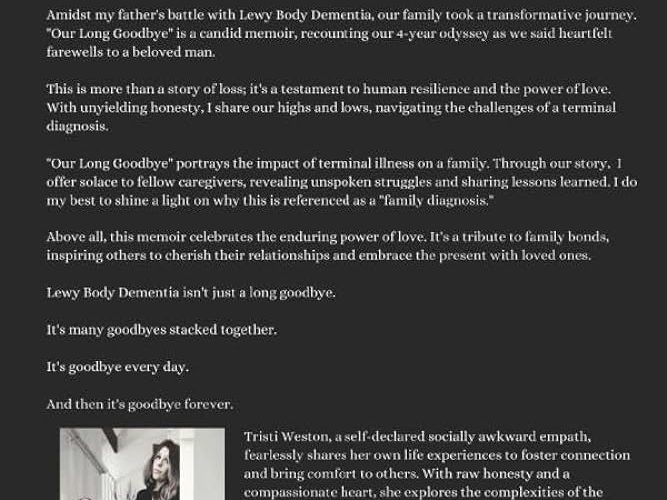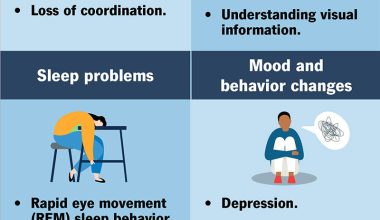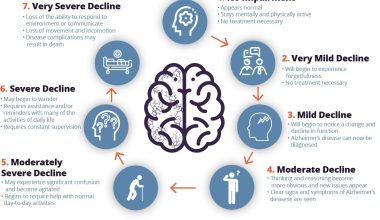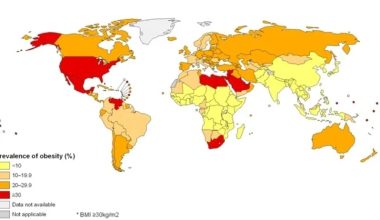As an Amazon Associate, I earn from qualifying purchases
Lewy body dementia progresses through seven stages, from mild cognitive decline to severe impairment. Lewy body dementia is an insidious disease that has seven stages, starting with subtle cognitive changes and progressing to severe impairment.
Understanding the different stages can help caregivers anticipate and address the challenges associated with each phase. Let’s delve deeper into the seven stages of Lewy body dementia, including their symptoms and the impact they have on the individual. This degenerative condition affects cognitive function, motor control, and behavior, posing significant challenges for both the patient and their loved ones.
By recognizing the distinct characteristics of each stage, families and healthcare professionals can provide targeted support and care throughout the progression of the disease.
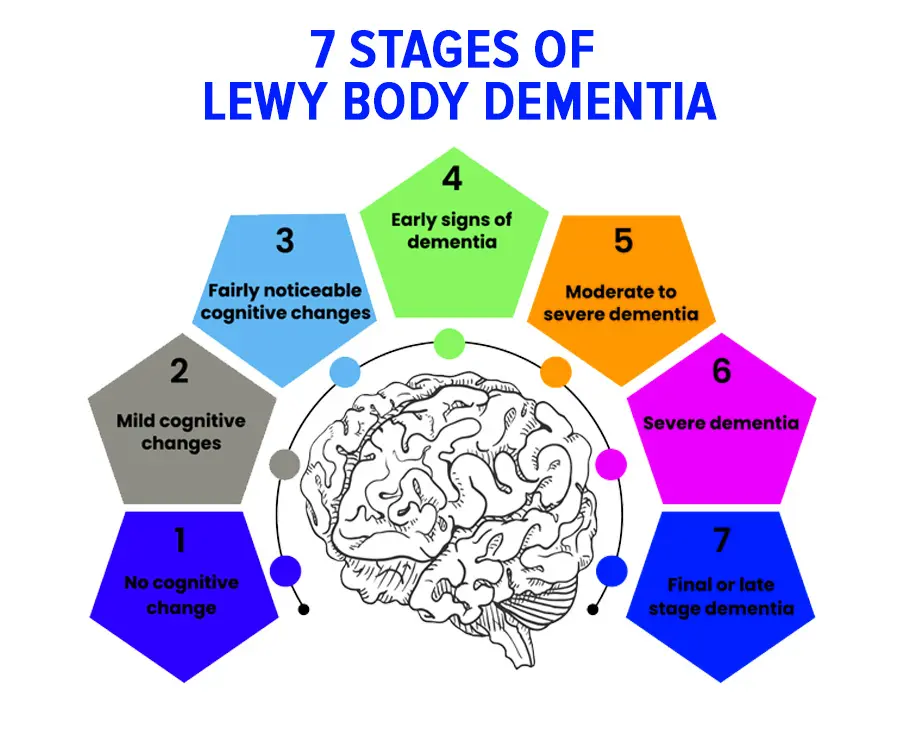
Credit: www.brightpoint-md.com
Stage 1: Early Stages
In the early stages of Lewy body dementia, individuals may experience mild cognitive decline, along with visual hallucinations. These early symptoms can be subtle and easily overlooked, making it crucial to recognize the signs to seek early intervention and appropriate support.
Mild Cognitive Decline
Mild cognitive decline in stage 1 of Lewy body dementia may present as occasional forgetfulness, difficulty with multitasking, or trouble finding the right words. While these symptoms may not significantly impact daily functioning, they signal the beginning of the disease’s progression and should prompt a comprehensive evaluation by a medical professional.
Visual Hallucinations
Visual hallucinations are a common early symptom of Lewy body dementia. These hallucinations may involve seeing people, animals, or objects that are not actually present. It’s important for caregivers and family members to be aware of the potential for visual hallucinations in individuals experiencing these early stages, as it can cause distress and confusion for the person affected.
Stage 2: Mild Cognitive Impairment
At Stage 2 of Lewy Body Dementia, known as Mild Cognitive Impairment, individuals may experience the emergence of cognitive challenges that impact their daily life. During this stage, attention and alertness issues, as well as memory problems, become more noticeable.
Attention And Alertness Issues
This stage is characterized by difficulties with attention and alertness. Individuals may find it challenging to stay focused on tasks and may experience fluctuations in their level of alertness throughout the day.
Memory Problems
Memory problems are a common feature of Lewy Body Dementia at this stage. Short-term memory may be notably affected, and individuals may have difficulty retaining new information. Daily routines and activities that were once familiar may become more challenging to remember and execute.
Stage 3: Moderate Dementia
As Lewy Body Dementia progresses, the symptoms become more pronounced and debilitating. In Stage 3, known as Moderate Dementia, individuals may experience worsening cognitive decline as well as the emergence of motor symptoms.
Worsening Cognitive Decline
In this stage, cognitive decline becomes more apparent and can significantly impact daily functioning. Memory loss becomes more severe, making it difficult to remember recent events, important dates, or even the names of loved ones. Attention span and concentration also decline, making it challenging to follow conversations or complete tasks that require focus.
Key characteristics of worsening cognitive decline in Stage 3 include:
- Impaired reasoning and problem-solving abilities
- Difficulty with decision-making
- Confusion and disorientation, especially in unfamiliar surroundings
- Trouble finding the right words when speaking or writing
- Difficulty in executing complex tasks, such as managing finances or cooking
Motor Symptoms
In addition to cognitive decline, individuals with Lewy Body Dementia often experience motor symptoms in Stage 3. These symptoms can significantly impact mobility and independence. Some common motor symptoms observed at this stage include:
- Tremors or involuntary movements, similar to those seen in Parkinson’s disease
- Stiffness and rigidity of muscles
- Difficulty with balance and coordination
- Slowed movements
- Changes in gait and posture
It is important to note that motor symptoms in Lewy Body Dementia can fluctuate throughout the day, which can further impact an individual’s ability to perform daily activities.
In Stage 3, the combination of worsening cognitive decline and motor symptoms can present significant challenges for both individuals with Lewy Body Dementia and their caregivers. Seeking support from healthcare professionals, joining support groups, and implementing strategies to manage symptoms can greatly improve quality of life during this stage.

Credit: www.facebook.com
Stage 4: Severe Dementia
In this stage of Lewy Body Dementia, the individual experiences a significant decline in cognitive abilities and motor function. It is often challenging for both the person with dementia and their loved ones to cope with the changes that occur during this severe stage. Let’s take a closer look at two specific symptoms that are commonly observed during Stage 4.
Loss Of Verbal Communication
One of the heartbreaking aspects of Stage 4 Lewy Body Dementia is the loss of verbal communication. The person may struggle to find the right words or may be completely unable to express themselves through speech. This loss of language can be incredibly distressing for family members, who may find it difficult to communicate effectively with their loved one.
During this stage, it becomes crucial to explore alternative forms of communication to bridge the gap. Using visual aids such as pictures or written prompts can help facilitate communication. Additionally, non-verbal cues such as gestures, facial expressions, and touch can provide emotional support and understanding.
Difficulty With Basic Tasks
As dementia progresses to Stage 4, individuals may find it increasingly challenging to perform basic tasks of daily living. Simple activities such as dressing, bathing, or feeding oneself may require assistance. The deterioration of motor skills makes it difficult for the person to coordinate their movements, resulting in clumsiness or unsteadiness.
It is important to provide a safe and supportive environment for individuals with severe dementia. Modifying the home environment with grab bars, handrails, and non-slip flooring can reduce the risk of falls. Breaking down tasks into smaller, manageable steps and providing clear instructions can also help the person maintain a sense of independence to the best of their abilities.
Support from caregivers and medical professionals is vital during this stage to ensure the individual receives proper care and attention. Although the challenges may seem overwhelming, it is essential to remember that individuals with Lewy Body Dementia can still experience moments of joy and connection with their loved ones.
Stage 5: End-stage Dementia
Stage 5 of Lewy Body Dementia, also known as End-Stage Dementia, is the most advanced stage of the disease. At this point, individuals may experience a profound cognitive decline and a significant loss of mobility. Let’s take a closer look at these two aspects.
Profound Cognitive Decline
The profound cognitive decline in End-Stage Dementia is characterized by a severe deterioration in memory, thinking abilities, and overall cognition. Tasks that were once routine and familiar become increasingly challenging and eventually impossible to complete independently. Individuals may struggle with basic daily activities such as dressing, eating, and bathing. They may also have difficulty recognizing familiar faces, including their loved ones.
As the disease progresses, hallucinations and delusions can become more prominent. Individuals may have vivid visual hallucinations and believe in things that are not real. This can be distressing not only for the person with dementia but also for their caregivers and family members who may find it challenging to distinguish between what is real and what is a result of the dementia.
Communication becomes extremely difficult in this stage. Speech may be limited or completely lost, making it almost impossible for individuals to express their needs and desires. However, it’s essential to remember that even though verbal communication might be diminished, individuals with End-Stage Dementia still have emotions and feelings, and they can perceive and understand non-verbal cues and actions.
Loss Of Mobility
In addition to the cognitive decline, individuals with End-Stage Dementia also experience a significant loss of mobility. Motor functions become severely impaired, leading to difficulties with movement, balance, and coordination.
Individuals may become bedridden and require assistance with all activities of daily living. Their muscles may become weak and stiff, making it challenging to change positions or even sit up without support. Falls are a significant concern at this stage, and precautions must be taken to prevent accidents and injuries.
Loss of mobility can also lead to complications such as pressure sores and infections. It’s crucial for caregivers to ensure that individuals are repositioned regularly, and proper hygiene and skincare are maintained.
While the challenges faced in this stage can be overwhelming for both individuals with Lewy Body Dementia and their caregivers, it’s essential to provide compassionate care and support. Creating a safe and comfortable environment can help individuals maintain their dignity and enhance their quality of life, despite the limitations posed by End-Stage Dementia.
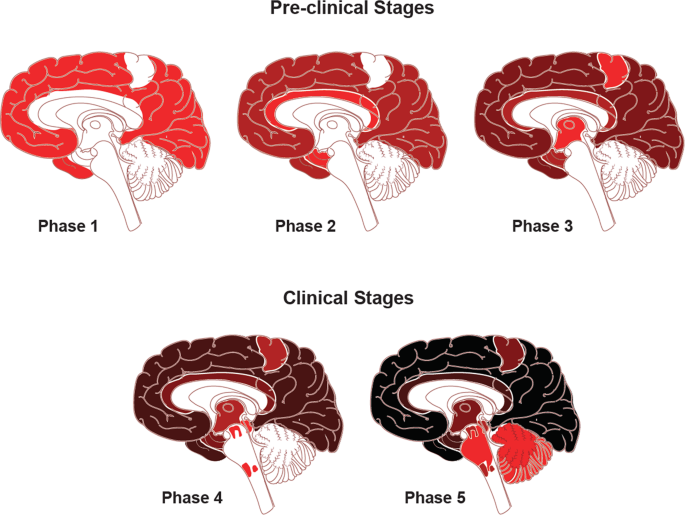
Credit: www.nature.com
Frequently Asked Questions Of 7 Stages Of Lewy Body Dementia
Is Lewy Body The Worst Dementia?
Lewy body dementia is a challenging form of dementia. While it may not be the worst, it can be particularly difficult because it often causes a combination of cognitive, physical, and psychiatric symptoms that vary from person to person.
What Triggers Lewy Dementia?
The exact cause of Lewy body dementia is not known. However, it is believed to be triggered by the accumulation of abnormal protein deposits in the brain. These deposits, called Lewy bodies, can interfere with brain function and lead to cognitive and motor symptoms.
Can Lewy Body Dementia Get Worse Suddenly?
Yes, Lewy body dementia can worsen suddenly due to fluctuations in cognitive and motor symptoms. This can be triggered by several factors, such as infections, medications, or stress. It is important to monitor the condition closely and seek medical attention if sudden changes occur.
What Causes Death With Lewy Body Dementia?
The primary cause of death in individuals with Lewy body dementia is often related to complications such as pneumonia or other infections. These complications can result from the impaired movement and swallowing abilities that arise as the disease progresses.
Conclusion
The 7 stages of Lewy body dementia can be a challenging journey for both patients and their loved ones. By understanding these stages, individuals can better prepare for what lies ahead and make informed decisions about care. From the early stages of mild cognitive decline to the advanced stages of severe motor and cognitive impairment, each stage comes with its unique set of symptoms and challenges.
Seeking professional help, education, and support can greatly enhance the quality of life for those affected by this devastating disease.
As an Amazon Associate, I earn from qualifying purchases
